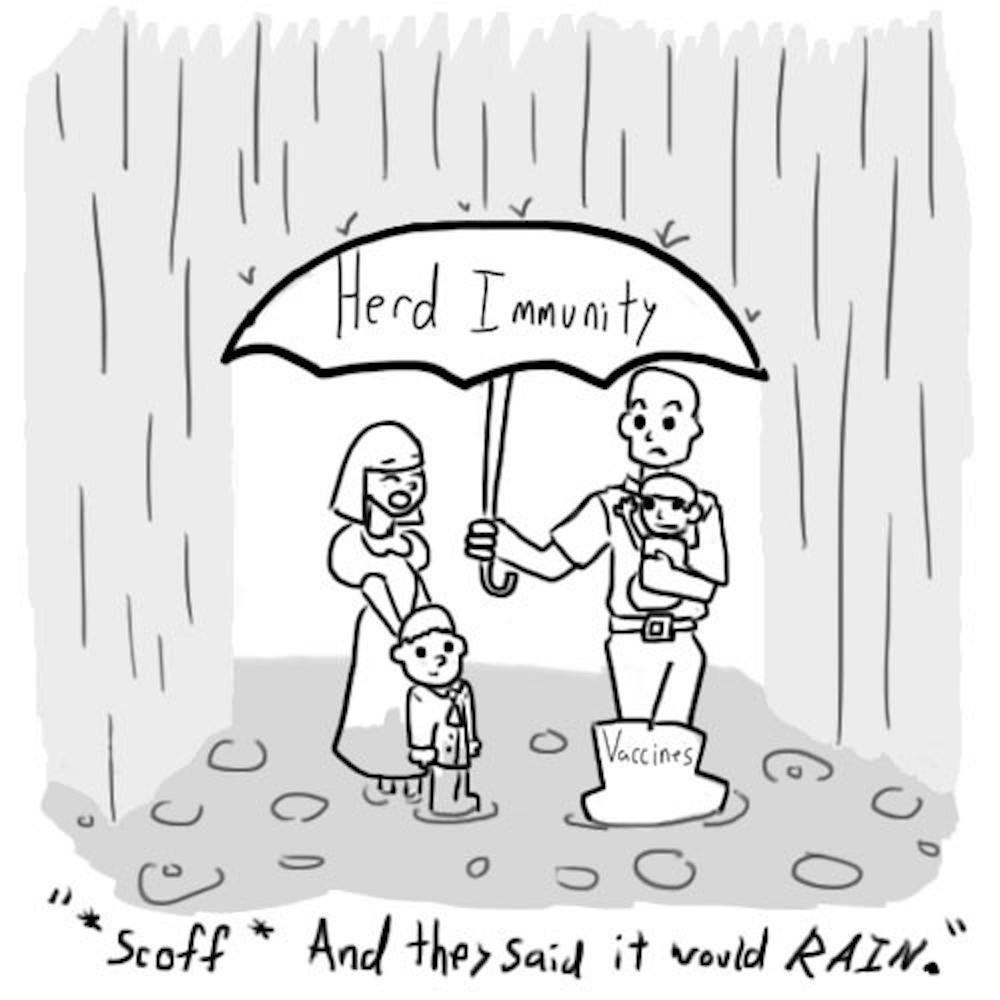Vaccines keep us from getting sick. That’s a good thing, right?
Not everyone agrees vaccines are good, though. An increasing number of parents in the United Sates are growing skeptical of vaccines and are choosing not to vaccinate their children.
The anti-vaccine movement is just one of many anti-science/technology movements — like climate change denial and being against GMO food — in the world.
Unfortunately, being anti-vaccination can cause public health problems.
On top of protecting yourself from a disease, you protect others through what doctors call “herd immunity” — the point at which a disease can no longer spread because no one can become infected.
Eventually, if nearly everyone is vaccinated and unable to get sick, a disease will go extinct, take the case of smallpox for example.
Some diseases are really good at spreading themselves, and they require more people to be vaccinated for herd immunity to take effect.
Measles can infect new people hours after an infected person has left an area, so for herd immunity to “kick in” and halt the spread of the disease, 84-93 percent of the population needs to be vaccinated.
Last year a measles outbreak started at Disneyland in which 147 people became infected, most of them from more affluent neighborhoods of California. In response to this outbreak, last June California banned children who were unvaccinated due to their parents’ personal beliefs from attending public schools.
This is a great move for public health, but the anti-vaccine movement has used this measure as fuel.
They argue the government shouldn’t force injections on them, and it intuitively makes sense.
No one force others what to inject in their body, but the decision to vaccinate affects everyone you cross paths with and therefore is not a matter of personal choice.
Another reason many people oppose vaccines is the belief that they can cause autism. They don’t. But the belief came from science fraud.
In 1998, Dr. Andrew Wakefield published a paper in The Lancelet — one of the world’s leading medical journals — showing that the measles, mumps and rubella (MMR) vaccine can lead to development of autistic symptoms.
A follow-up investigation found Dr. Wakefield had faked his data. His paper was quickly retracted and his medical license was revoked, but he still left his mark on science.
Vaccination rates in the UK dropped to as low as 80 percent by 2004 after the Lancelet paper was published, with many parents scared.
Many of them do not trust the investigation and continue to believe that vaccines cause autism, even though science has thoroughly debunked this connection.
These people cling to flawed science to support their views, and therefore are not opposed to science itself.
They’re scared of new, tough-to-understand technologies and want to feel safe in an unfamiliar world.
But not vaccinating kids is the wrong way to do this. Get your kids vaccinated, and get a booster yourself. For everyone’s sake.




